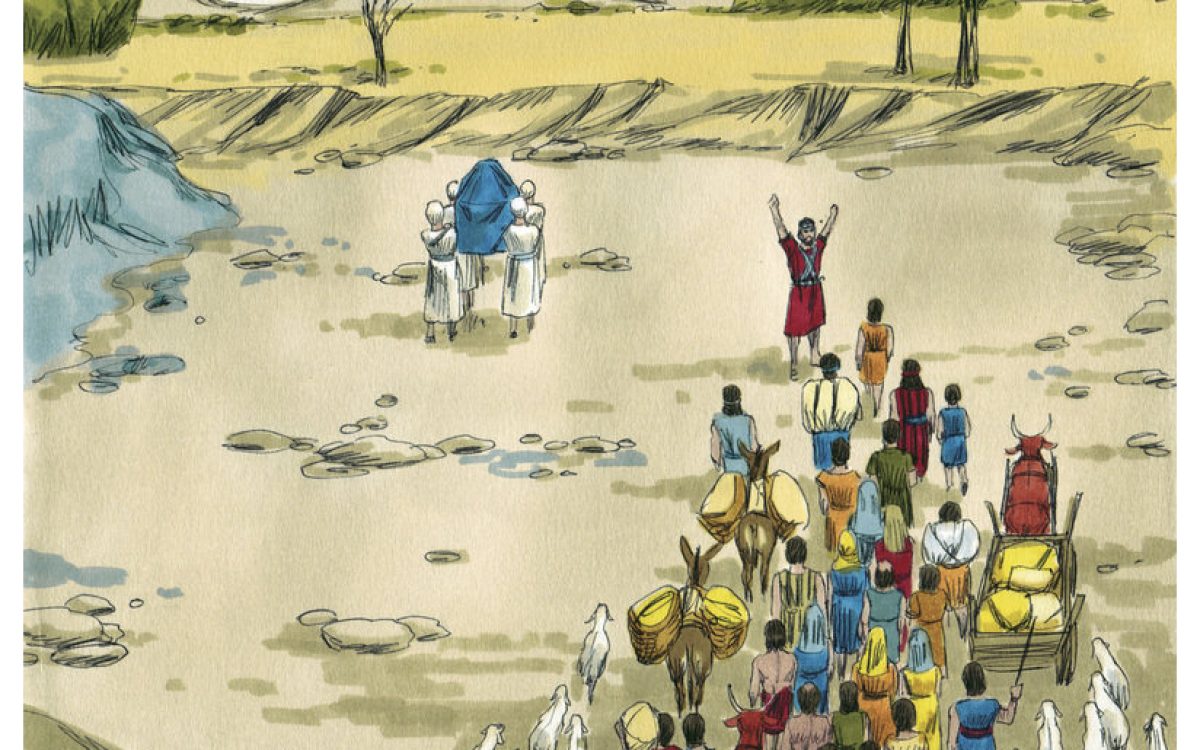In today’s reading (Joshua 3:7-10a, 11, 13-17), we witness Joshua stepping up confidently to take on the role of Moses. This follows yesterday’s passage (Deut. 34:1-12), where we learned of Moses’ passing and Joshua’s appointment as his successor.
“Now Joshua, son of Nun, was filled with the spirit of wisdom,
since Moses had laid his hands upon him;
and so, the children of Israel gave him their obedience,
thus, carrying out the LORD’s command to Moses.”
Sequel to yesterday’s presentation, today, the narrator continues to present Joshua as the rightful successor of Moses. And not only that he succeeds Moses, but he is now assuming his responsibility by taking the Israelites to the promised land.
The LORD said to Joshua,
“Today I will begin to exalt you in the sight of all Israel,
that they may know I am with you, as I was with Moses.
Now command the priests carrying the ark of the covenant
to come to a halt in the Jordan when you reach the edge of the waters.”
Today’s reading is interesting because it shows Joshua leading the people across the Jordan, similar to how Moses led them across the Red Sea. However, there is a beautiful shift in how the event unfolds. In Moses’ case, he split the sea with his rod, but in this case, the Lord himself, present in the ark of the covenant, performs the miracle. Joshua simply gives the order and does not need to act. It may seem like a coincidence that the people had to cross the sea when leaving Egypt, the land of exile, and had to cross the Jordan when entering the promised land.
Some Bible scholars might view this last event as a retelling of God’s past actions in the Exodus, while others might consider it as the authors utilizing similar sources. Nonetheless, what truly matters is not the authors’ primary sources or narrative techniques of the time. Instead, it is the significance of Joshua possessing the power that his master Moses had.
On the other hand, crossing the Jordan on dry ground was a sign of God’s presence. Also, just as crossing the Red Sea symbolized leaving Egypt behind, crossing the Jordan into Canaan signified leaving Jericho far behind. In today’s reading, the author(s) conclude the era of the exodus (Egypt and Moses) and usher in a new one (Canaan and Joshua) through the story of crossing the Jordan to the promised land. This is the story of a people who recount the beginning of their nation, starting from where it all began.






